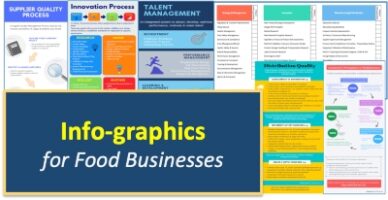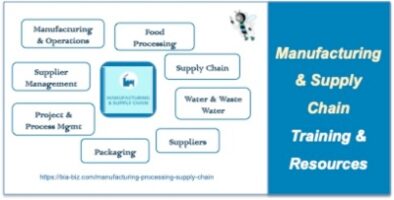32 Best Job Interview Tips: How To Prepare For an Interview in 2023 (Guest Blog)
Has your job search been successful, finally landing you an interview for the desired position? Congratulations! You’re one step closer to starting a rewarding career journey.
Whether you responded to a job posting or snatched the opportunity at a career fair for college students and business professionals, you know what’s next – preparing for the interview.
This selection process is integral to hiring and your perfect opportunity to paint yourself as the ideal candidate. We get it: merely thinking about it sends chills down your spine. You want to ace that interview but worry you might freeze or say something wrong.
That feeling is normal, especially if you’ve never been to a job interview. Don’t worry; this comprehensive guide is your ally for building impeccable interview skills.
Here are the crucial tips and tricks for a successful interview, from preparing, nailing the questions, and following up to avoiding and getting out of the common pitfalls.
Preparing for a job interview

Preparation is the key to success. Taking the time to prepare for your scheduled job interview will give you a much-needed confidence boost and ensure nothing unexpected takes you by surprise. It will also show the interviewer you’re an experienced professional who cares about the job.
Here’s what proper preparation requires.
Research the company and the position
The latest job interview statistics from LegalJobs show that 47% of recruiters wouldn’t hire a candidate who doesn’t know much about their company.
Research the company’s mission, vision, and core values. Understand the company culture, products or services, clients, competitors, and employees from various backgrounds to see how you fit into the team. You’ll gain confidence and essential knowledge to demonstrate your interest in the company.
The same goes for researching the position. Learn what the employer is looking for in a job candidate to prepare for all the situational, open-ended, and behavioral interview questions.
The job ad contains information about the company and the position, including every job requirement each applicant must meet. The same goes for the company bio on the organization’s website. However, you’ll learn more from press releases, social media, and job posting sites, where you can get the inside scoop, like reviews and salary numbers.
Practice answers to common interview questions
Examples of common interview questions with answers
Question 1: Why do you want to join our company?
This question is your opportunity to show you understand the company’s vision, mission, culture, and values and that they’re an ideal match for your professional goals.
Demonstrate your passion for the job even if those goals require it as a stepping stone. You wouldn’t want the interviewer to think you’ll jump ship at the first opportunity.
Example answer: “I’m passionate about sustainability and green initiatives and would be thrilled to contribute to a forward-looking company that cares about society and the environment. Corporate social responsibility and positive work culture align with my values, making this company top my list.”
Question 2: Why are you interested in this position?
This question lets you shine as you can tie the answer to your skills and expertise while showcasing your understanding of the duties and responsibilities.
Focus on your few most significant strengths – relevant to the role – to avoid rambling and making it all about you. The key is to showcase your motivation.
Example answer: “I was excited to learn about this company’s new AI initiative for innovative project management because I enjoy designing AI and machine learning tools for seamless user experience. In my previous role as a machine learning engineer, I built a predictive model that helped increase performance by 45%. This position would enable me to hone my skills and create agile workflows.”
The more resources you read, the more comfortable you’ll be during the interview.
The next step? Practice, practice, and then practice some more. That’s the crucial interview tip.
Practice your answers to every common job interview question so you don’t fumble or risk your brain going into standby mode when you hear the dreaded “Why should we hire you?” question.
The answers you prepare are your elevator pitch, so make it count. Ask a friend for help – you can rehearse a mock interview several times to get on the right track. Don’t forget to pick your practice buddy’s brain for insightful career advice.
Select appropriate attire
The last thing you want when interviewing for a job is to look out of place. Dress the part, and don’t pick the first clothing item you see. Get your interview outfit ready a few days earlier, ensuring you select neutral colors – you don’t want to look like a Picasso painting.
Learn the company dress code and plan what you’ll wear accordingly, ensuring you feel comfortable.
According to Inc. Magazine, 71% of employers won’t schedule a second interview or hire you if you don’t follow the company dress code.
Pro tip: Dress like you’re applying for a higher position – one rung above yours. You’ll make a winning first impression.
Making a positive first impression
Is it interview day already? You know what time it is – it’s swag o’clock. It’s your opportunity to shine like the brightest star and show you’re the perfect candidate for the job.
Assuming you’ve prepared thoroughly and have the confidence of your favorite superhero, take the following steps to make a brilliant first impression.
Arrive early
Hiring managers highly value punctuality. However, don’t arrive at your interview location on time; get there 10–15 minutes early. You’ll have extra time to prepare mentally, visit the restroom to ensure your outfit is impeccable, and chat with the front desk or security staff.
Drive to the location a few days beforehand to know how much time it takes to arrive to avoid being late. That’s even more crucial if you use public transit or a cab because you can compare their arrival times and adjust your schedule accordingly.
Show good manners
Be respectful no matter who you meet once you arrive – a receptionist, security officer, or janitor. Greet them, make eye contact, and be polite. That’s the best advice for interview success. Why? Your interviewer might ask them about you afterward. You’ll want them to put in a good word.
You’ll also see those people daily if you get the job; making connections from day one will go a long way.
Speak the correct body language
Body language speaks louder than verbal communication. It tells your interviewer if you’re confident and focused or insecure, bored, and anxious. Your facial expressions, gestures, and posture reflect your personality and emotional state, leaving an impression that can make or break the interview.

According to Business2Community, hiring managers reject candidates because of these non-verbal mistakes:
- No or poor eye contact (67%)
- Not smiling or not displaying confidence (38%)
- Poor posture (33%)
- A weak handshake (26%)
- Crossing their arms (21%)
Therefore, offer a firm handshake, maintain eye contact and good posture, smile, and use controlled hand gestures. For instance, open palms facing upward show honesty and openness, while keeping them clasped in your lap means you’re relaxed.
Remember that a firm handshake doesn’t mean crunching the hiring manager’s bones; you’ll seem arrogant. However, don’t go for the mildest version, the so-called “cold fish,” because that signals low self-esteem and insecurity. Find the sweet spot somewhere in between.
Be positive and authentic, exude confidence from the first contact with the hiring manager, and you’ll win them over in seconds.
Answering questions effectively
Whether you answer a typical job interview question like “Tell me about yourself” (okay, not a question per se) or anything job-specific, be concise and refer to your skills and expertise.
Direct answers will help you display confidence and focus and prevent you from rambling and appearing nervous.
How to respond to behavioral interview questions
Behavior-based interview questions give hiring managers a sneak peek into your future job performance through examples of your accomplishments.
The key to responding to behavioral interview questions is to use the STAR (Situation, Task, Action, Result) method. It works wonders for anything the interviewer might ask, including these common question examples:
- How do you handle challenges when working under pressure?
- How do you complete tasks on a tight deadline?
- How do you approach team communication problems?
- What do you do when disagreeing with a colleague?
- How did you handle a mistake in a previous project?
- Can you give me an example of an achieved goal and the steps you took to accomplish it?
With the STAR method, you recall a situation relevant to the question, describe the task for addressing the issue, explain your actions for completing it, and discuss the results.
Remember to balance between confidence and humility. You wouldn’t want to make it all about yourself and appear egotistical; no one wants to hire someone whose ego fills the room.
How to address potential weaknesses or the interviewer’s concerns
“What are your greatest strengths?” This classic question is a walk in the park. Its counterpart addressing your weaknesses is another story – and many candidates answer it wrong.
Saying you have no weaknesses might get you on the elimination list. Even the most prominent business moguls have shortcomings; recognizing them displays your self-awareness and willingness to improve. It shows you understand your areas for professional or personal development. It’s an opportunity to communicate how you handle challenges.
The same goes for presenting strengths as weaknesses, like saying: “I’m a perfectionist.” It’s a red flag showing you’re not humble and may not learn from your mistakes.
Instead, pick anything you struggle with, such as:
- Being detail-oriented and spending too much time on the specifics;
- Having difficulty saying NO;
- Rarely asking for help because you’re used to being independent;
- Specific technical deficiencies.
The key is to put your weaknesses in a positive light, be honest, and discuss how you work on improving them.
What about the interviewer’s potential concerns, such as you going on maternity or paternity leave soon after getting the job? They might ask inappropriate or illegal questions, like “Do you have children and do you plan on having more in the future?” or “What is your sexual orientation?”
Many companies ask similar inappropriate questions. You can answer that you don’t see how it’s relevant to your application or that your career is your primary focus, whether or not you have children.
Asking the right questions
Every hiring manager will ask if you have any questions after answering theirs. Think saying “No” is the correct answer? Wrong!
A job interview is a two-way process. Asking the right questions will help you determine if the company is a perfect fit for your needs. Also, companies seek assertive candidates who show genuine interest in filling a vacancy.
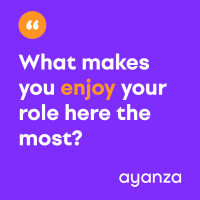
Examples of questions you could ask the interviewer
- Does the company have any upcoming projects or initiatives that genuinely excite you?
- What makes you enjoy your role here the most?
- How would you describe the culture here – dynamic, collaborative, independent, learning, or results-oriented? Is there cross-department collaboration?
- Can you tell me about your favourite team-building event?
Demonstrate your interest in the position and the company
Demonstrating interest in the position and the company is crucial, primarily if you’ve switched careers.
Here are other questions you can ask the hiring manager regarding the company and the desired role:
- Should I read anything before joining your company to ensure I’m on the same page with the team?
- What are the company’s growth and development plans?
- How would my typical day in this position look?
- What is the onboarding process like at the company?
- What is the most crucial goal I should achieve in the first three months of working here?
- How often do you conduct performance reviews?
Gather information to decide if the job is the right fit for you
The pre-interview assessment process and the actual interview will help the hiring manager determine if you’re the ideal candidate for the role. However, you must also ensure you’re making the right career decision by joining the company.
Here are some questions to gather the necessary information:
- Does this position have career paths?
- Is there training after onboarding?
- What are the most significant challenges I might face in this position?
- How does the company approach employee satisfaction?
- What’s your favorite and least favorite part of working here?
After getting answers to all your questions, end the interview with gratitude, thanking the hiring manager for meeting with you. Express excitement about potentially joining the company, and say they can contact you anytime for additional questions.
Following up after the interview
The most challenging part is now behind you. You’ve (hopefully) aced that interview, so pat yourself on the back and consider the next step – following up. Yes, you should follow up with the hiring manager because you’ll show interest in filling the position. Here’s what you can do.
Send a thank-you note or email
A thank-you note or email is an excellent way to express gratitude and stand out. A handwritten note is perfect for thanking a personal contact, but a well-thought-out email can do the trick.
If multiple people interviewed you, get the email address of each and craft a personalized note. Send them within 24–48 hours while the interview is still fresh in everyone’s minds.
Follow up on your application status
If you don’t hear from the hiring manager in 5–7 business days after the interview, send an email asking about your application status – unless they’ve told you precisely when to expect an answer.
Tell the hiring manager why you’re following up, mention the position you’ve applied for, emphasize your interest in the job, and directly ask about your status. Sign off by saying you look forward to hearing from them and end with a “Thank you.”
Common job interview mistakes to avoid & how to recover from them
Everyone makes mistakes; we’re only human. However, while some may not get you an additional interview, you can recover from others.
Here are the most common mistakes to avoid:
- Arriving too early or being late – Going to the interview too early might rush the hiring manager, messing with their schedule and leaving a poor impression. Instead of hurrying them up, apologize and use the extra time to chat with the front desk staff and learn the company dynamics. Arriving late is disrespectful and shows you’re unprofessional and unreliable. Apologizing and thanking the interviewer for waiting is the only way to recover from this mistake.
- Showing up unprepared – Not researching the company and the position you’re applying for doesn’t show an experienced professional. The same goes for not preparing examples of work experience. It’s like showing you no longer want the job and are there as a formality. Focusing on your strengths and referring to your skills and expertise might help leave a better impression.
- Not showing enthusiasm for the job – Showing enthusiasm about the position is a crucial interview tip. A lack of it can make you appear bored and leave a poor impression. Companies seek candidates eager to join them, so smile, be positive, and nod whenever you agree with something. If you notice your attention dropping or, God forbid, yawn, apologize and say you haven’t had your second espresso yet.
- Not asking questions – This common job interview mistake is a huge no-no, making you seem disinterested in the position and disengaged during the interview. Preparing questions in advance is crucial, but if your mind goes blank, ask if sending your “already prepared list” via email afterward is okay.
- Lying or overselling yourself – Honesty is the best policy; anything else is disrespectful. As for overselling yourself, it signals desperation. Have you switched careers and wish to embellish your abilities to appear perfect for the job? Instead of lying or exaggerating, refer to a transferable skill that makes you an ideal candidate. Always answer questions truthfully because hiring managers verify qualifications and backgrounds.
- Using wrong non-verbal cues – Crossing your arms and legs, slouching, fidgeting, scanning the room instead of maintaining direct eye contact, glancing at your watch or phone, or constantly touching your face are the most significant body language mistakes. They show distraction, stress, and lack of confidence or focus. The solution? Relax. Be aware of your movements and voice, and channel your energy into active listening.
- Not following up – Not sending a follow-up email (or following up too late) to ask about your status shows disinterest. Doing it too soon might mean you’re desperate. You also don’t want to spam the hiring manager’s inbox with too many messages. Follow up after a week or the specified time frame.
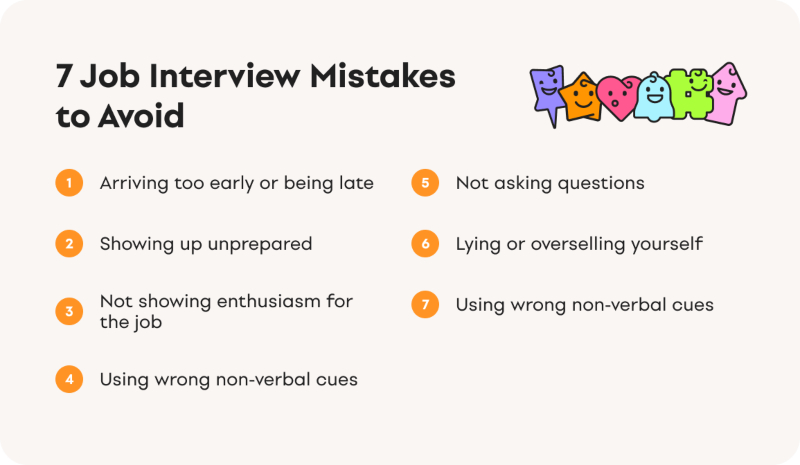
Whichever of these sloppy mistakes you make, a heartfelt apology can get you back in the hiring manager’s good graces. Even if you arrive late or unprepared, focus on your strengths and thank the interviewer for their time. Most importantly, learn from your errors if you score an additional interview.
How to present yourself and use storytelling techniques to highlight qualification and experience
Storytelling is an excellent way to connect with the interviewer, make them relate, evoke positive emotions, and stand out. However, listing your strengths, skills, and work experience doesn’t tell a story; your achievements do.
Here are the essential interview tips for presenting yourself through storytelling:
- Introduce yourself briefly – Presenting yourself in a job interview doesn’t mean rehashing your resume information. Say who you are (professionally, not revealing something personal), refer to your strengths, and keep it short and sweet.
- Use the STAR model – Prepare an engaging story of a situation where you excelled, including how you handled it. Provide context and paint yourself the hero by stating impressive quantifiable results.
- Emphasize enthusiasm and experience – Use storytelling to highlight qualifications and achievements, referring to performance awards or other accolades you may have. That’s an opportunity to share new information that isn’t on your resume and show genuine excitement about the job.
How to address salary and benefits during the interview
Addressing salary expectations when interviewing for a job is a delicate matter requiring diplomacy. Should you aim too high, hoping the company will see your worth? Should you play it safe and ask for lower pay to get the job? Neither.
Determine a salary range you’re happy with, and preferably discuss the numbers after the hiring manager makes a job offer. You can then negotiate and get proper compensation.
Here are the crucial tips to ensure you stay in the game and score fair compensation:
- Research average pay numbers – Learn how much professionals in your role and location earn to determine a reasonable salary range before the interview and avoid selling yourself short.
- Don’t bring up salary during the first interview – Timing is crucial. Leave the money talk for the final round to show contributing to the company is your primary motivation (even though you’re in it for the money). Tact is everything.
- Make a data-driven argument – Refer to your research and focus on facts, providing a reasonable salary range. Aim slightly higher than the market rate, tying back to the value you’ll bring to the company. Those numbers and your qualifications and experience can help you negotiate a higher salary.
- Say you’re flexible – If the hiring manager doesn’t mention numbers or ask for your expected range, you can show you’re willing to compromise. Open the door to negotiation by saying something like: “If we decide to work together, I’m confident we’ll agree on a salary matching my expertise and experience.” You can then ask for the salary range the company has allocated for the position.
- Ask about the company benefits – Instead of focusing only on the salary, ask about the entire compensation package. For instance, a retirement plan, health insurance, flexible work schedule, and more paid time off might sweeten the deal or compensate for lower pay. You can negotiate better benefits by referring to work-life balance and your values.
How to handle different types of interviews
Have you had a phone interview after applying for a job? That was a career assessment test to ensure you’re a suitable candidate. Most companies use it to screen applicants and shortlist perfect fits for vacant positions.
Many use AI-based project management tools like Ayanza as part of their hiring process to record notes on candidates, make unbiased decisions, and accelerate the initial screening.
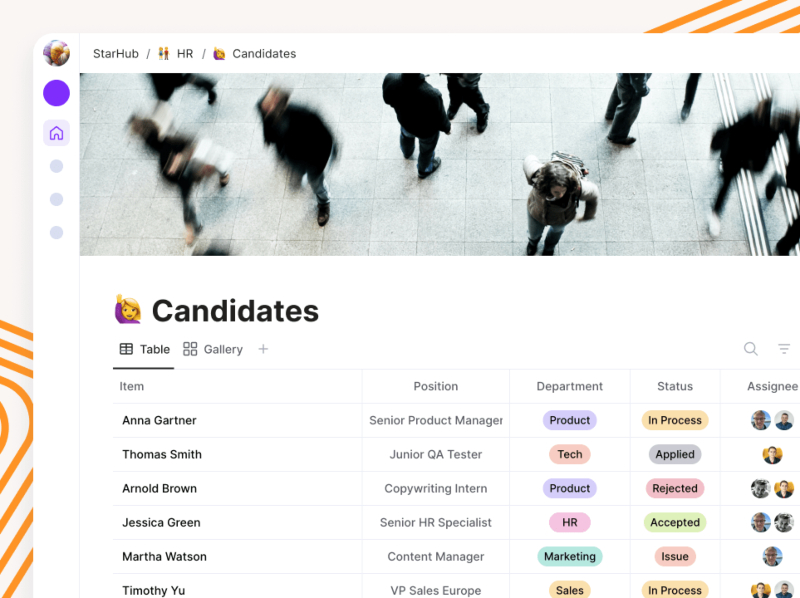
They can then streamline the second round, which can include these common interview styles:
- Individual in-person interviews – Ace these one-on-one interviews by keeping answers short and sweet, building rapport, staying positive, and speaking the correct body language. Essentially, follow all the job interview tips above.
- Group interviews – Interviewing simultaneously with multiple candidates requires professionalism and patience. Relax, show off your leadership skills, and demonstrate you’re a team player. Listen attentively, smile and nod when appropriate, support fellow applicants’ statements, and stand out with intelligent questions.
- Panel interviews – Interviewing for a job in front of a committee can be challenging, but that’s the point – to show how you perform under pressure. Research all the panel members, shake hands and maintain eye contact with each when answering and asking questions, mind your body language, and stay calm.
- Virtual interviews – According to an Indeed survey, 82% of recruiters conduct virtual interviews. Nailing video interviews requires the same steps as their face-to-face counterparts, even dressing appropriately. Consider a virtual background, eliminate background noises and distractions, don’t use a cheat sheet, and look directly at the camera.
- Off-site interviews – Some recruiters choose a restaurant or cafe as an interview location. A lunch or dinner interview lets them evaluate your personality in an informal setting. Be yourself, show professionalism, stay focused, and don’t order alcoholic drinks and messy food like burgers or noodles; you don’t want to be a slob.
Conclusion
- Preparing for a job interview is crucial for success.
- It helps you rehearse the answers to common questions to boost confidence and make an excellent first impression.
- Practice at home to know what to say beforehand.
- Want to make it fun? Brag about your accomplishments in front of the mirror to remove stress from the equation.
- Giving yourself a pep talk will calm your pre-interview nerves and help shake off jitters before D-day comes.
About the Author
Radovan Harnak is a Content Manager at Ayanza an innovative project management software that incorporates elements of AI. With this powerful solution, We help teams build healthy and successful projects within their organizations. In my free time, I enjoy exploring different cultures through cooking international dishes in my kitchen or taking pictures with vintage cameras for fun!
Additional Resources
Building a Resume for Careers in the Global Food Sector (Guest Blog)


